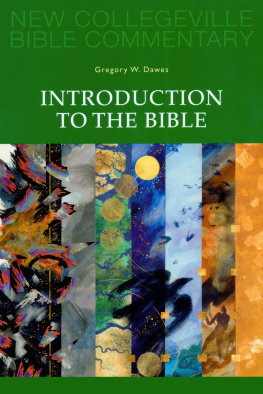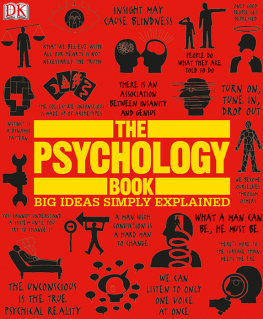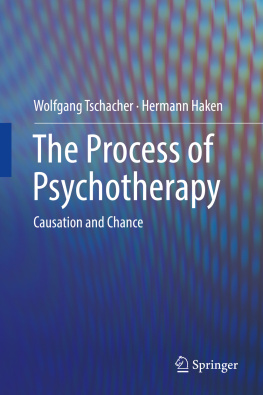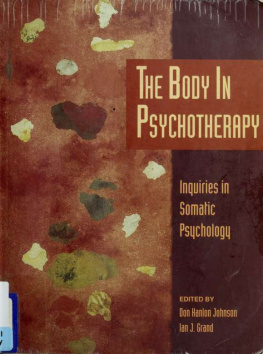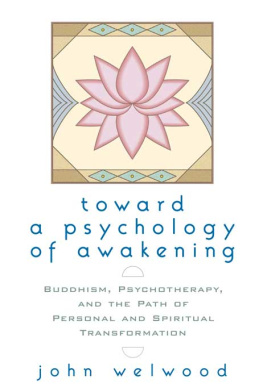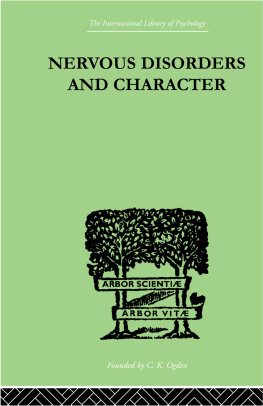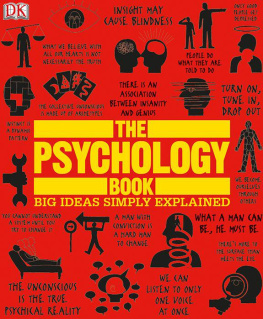Dawes - House of cards: psychology and psychotherapy built on myth
Here you can read online Dawes - House of cards: psychology and psychotherapy built on myth full text of the book (entire story) in english for free. Download pdf and epub, get meaning, cover and reviews about this ebook. City: London;New York, year: 1997;1994, publisher: Simon & Schuster;Free, genre: Politics. Description of the work, (preface) as well as reviews are available. Best literature library LitArk.com created for fans of good reading and offers a wide selection of genres:
Romance novel
Science fiction
Adventure
Detective
Science
History
Home and family
Prose
Art
Politics
Computer
Non-fiction
Religion
Business
Children
Humor
Choose a favorite category and find really read worthwhile books. Enjoy immersion in the world of imagination, feel the emotions of the characters or learn something new for yourself, make an fascinating discovery.

House of cards: psychology and psychotherapy built on myth: summary, description and annotation
We offer to read an annotation, description, summary or preface (depends on what the author of the book "House of cards: psychology and psychotherapy built on myth" wrote himself). If you haven't found the necessary information about the book — write in the comments, we will try to find it.
Dawes: author's other books
Who wrote House of cards: psychology and psychotherapy built on myth? Find out the surname, the name of the author of the book and a list of all author's works by series.
House of cards: psychology and psychotherapy built on myth — read online for free the complete book (whole text) full work
Below is the text of the book, divided by pages. System saving the place of the last page read, allows you to conveniently read the book "House of cards: psychology and psychotherapy built on myth" online for free, without having to search again every time where you left off. Put a bookmark, and you can go to the page where you finished reading at any time.
Font size:
Interval:
Bookmark:
PSYCHOLOGY AND PSYCHOTHERAPY BUILT ON MYTH
ROBYN M. DAWES
THE FREE PRESS
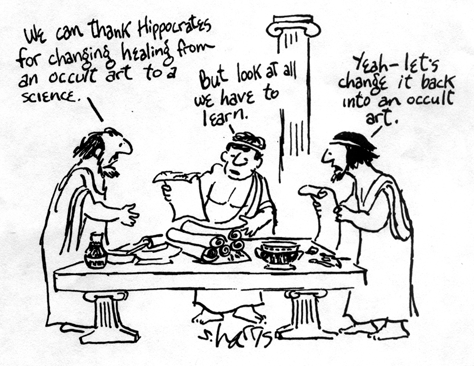

THE FREE PRESS
A Divison of Simon & Schuster Inc.
1230 Avenue of the Americas
New York, NY 10020
www.SimonandSchuster.com
Copyright 1994 by Robyn M. Dawes
All rights reserved, including the right of reproduction in whole or in part in any form.
First paperback edition 1996
FREE PRESS PAPERBACK and colophon are trademarks of Simon & Schuster Inc.
Manufactured in the United States of America
10 9 8 7 6 5
Library of Congress Cataloging-in-Publication Data
Dawes, Robyn M., 1936
House of cards: psychology and psychotherapy built on myth / Robyn M. Dawes. 1st Free Press paperback ed.
p. cm.
Originally published: New York: Free Press; Toronto: Maxwell
Macmillan Canada; New York: Maxwell Macmillan International, 1994
Includes bibliographical references and index.
ISBN 0-684-83091-4(pbk.)
ISBN 13: 978-0-684-83091-9
eISBN 13: 978-1-439-18888-0
1. PsychotherapyPhilosophy. 2. Clinical psychologyPhilosophy. 3. Psychotherapists. 4. Clinical psychologists. I. Title.
[RC480.5.D38 1996]
616.891401dc20 96-12597
CIP
ISBN 0-02-907205-0
0-684-83091-4(Pbk)
The cartoon depicted facing the title page is reproduced with the permission of Sidney Harris.
Dedicated to the professional psychologists (and psychiatrists) I know who take research results seriously, in hopes this book will strengthen rather than weaken their clout.
The greatest enemy of the truth is not the liedeliberate, contrived, and dishonest, but the mythpersistent, pervasive and unrealistic.
John F. Kennedy
When ideas go unexamined and unchallenged for a long time, certain things happen. They become mythological, and they become very, very powerful.
Edgar L. Doctorow
As I argue throughout this book, behavior is influenced by multiple factors. My own decision to write the book has been motivated by two factors in particular: anger, and a sense of social obligation. At least, those are the two of which I am most aware. I have also had time, made available by an in-house sabbatical at Carnegie Mellon University after serving for five years as a department head, and I have been greatly encouraged by colleagues who have taken the time to review various chapter drafts.
Why is anger a motivation for writing this book? Because the rapid growth and professionalization of my field, psychology, has led it to abandon a commitment it made at the inception of that growth. That commitment was to establish a mental health profession that would be based on research findings, employing insofar as possible well-validated techniques and principles. At least, professional practitioners in psychology were to make clear to their clients and to society at large that they were proceeding in the absence of relevant scientific knowledge when none existed. What was never envisioned was that a body of research and established principles would be available to inform practice, but that the practice would ignore that research and those principles. Worse yet, far too much professional practice in psychology has grown and achieved status by espousing principles that are known to be untrue and by employing techniques known to be invalid.
Instead of relying on research-based knowledge in their practice, too many mental health professionals rely on trained clinical intuition. But there is ample evidence that such intuition does not work well in the mental health professions. (In fact, it is often no different from the intuition of people who have had no training whatsoever.) Forty years ago, professionals could be excused for believing in the power of their own intuitive judgment, because at that time there was very little evidence concerning its accuracy one way or the other. That is no longer true. Today there is plenty of evidence about the accuracy of their intuition, and its negative.
Thus, I am angered when I see my former colleagues make bald assertions based on their years of clinical experience in settings of crucial importance to others livessuch as in commitment hearings, or in court hearings about custody arrangements, or about suspected child sexual abuse. I am particularly infuriated when they base these assertions on results of psychological techniques that have been proven to be invalid but that I myself have found to be of great help in my clinical practice. Those are real people out there about whom the judgments are being made. Moreover, the people whose lives are affectedor their lawyersmay have great difficulty casting doubts on what such professionals claim, due to the pretense that some sort of science underlies the claims. Often that is not true. There really is a science of psychology that has been developed with much work by many people over many years, but it is being increasingly ignored, derogated, and contradicted by the behavior of professionalswho, of course, give lip service to its existence. An expert in a court room setting is supposed to be competent to present an opinion with reasonable certainty. But a mental health expert who expresses a confident opinion about the probable future behavior of a single individual (for example, to engage in violent acts) is by definition incompetent, because the research has demonstrated that neither a mental health expert nor anyone else can make such a prediction with accuracy sufficient to warrant much confidence. (Professionals often state that their professional role requires them to make such judgments, however much they personally appreciate the uncertainty involved. No, they are not requiredthey volunteer.)
Finally, such experts are costing society more and more, not only because they are proliferating but because their claim to be working on the basis of authoritative intuition is compatible with our naive ideas about what constitutes expertise. Those who admire the expertise of medical doctors, for example, stress their powers of judgment and intuition, while simultaneously downgrading their heavy reliance on laboratory techniques and results that are well-validated but impersonal, like blood tests, biopsies, and X-rays.
I feel a sense of obligation because society has supported my research and has personally supported me sufficiently well that I do not, like some previous generations of university professors, have to take a vow of semipoverty to pursue my interests. Thus, I feel an obligation to tell people my view of whats going on. Moreover, I will attempt to educate not just by drawing conclusions but by sharing the research and reasoning on which I base these conclusions. For example, rather than simply cite the research studies that have concluded that professional psychologists (and other mental health professionals) do not learn from experience, I have attempted to differentiate types of learning, to review the conditions under which these different types may or may not occur, and to demonstrate that the experience of mental health professionals does not allow learning of the type they claim to have had. For educational purposes, I have also attempted to make each chapter in Part One self-containedeven though I must then repeat some principles (for example, about the nature of retrospective memory) when they are applicable to different topics, and must occasionally cite the same references (for example, concerning psychotherapists theoretical orientations).
Font size:
Interval:
Bookmark:
Similar books «House of cards: psychology and psychotherapy built on myth»
Look at similar books to House of cards: psychology and psychotherapy built on myth. We have selected literature similar in name and meaning in the hope of providing readers with more options to find new, interesting, not yet read works.
Discussion, reviews of the book House of cards: psychology and psychotherapy built on myth and just readers' own opinions. Leave your comments, write what you think about the work, its meaning or the main characters. Specify what exactly you liked and what you didn't like, and why you think so.

